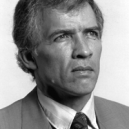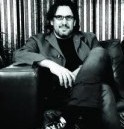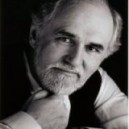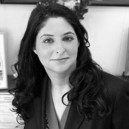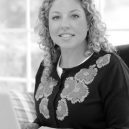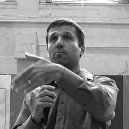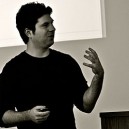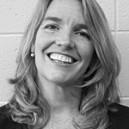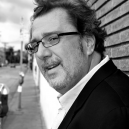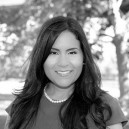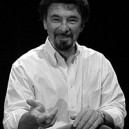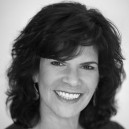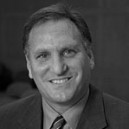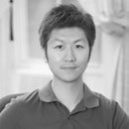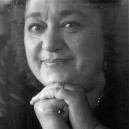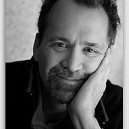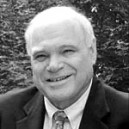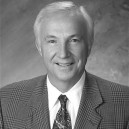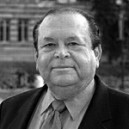Dr. Frank C. Worrell
School Psychologist
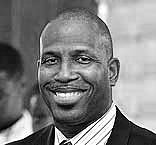 Ever since an uncontrolled outburst from a fellow student piqued his interest in psychology, Dr. Frank C. Worrell has run the gamut of the profession's career options. In his home country of Trinidad and Tobago, he has worked as an English teacher, counselor, and even a principal at a continuation school in Trinidad and Tobago. He has also served as a school psychologist, professor of school psychology, editor of psychology journals, and numerous university task forces.
Ever since an uncontrolled outburst from a fellow student piqued his interest in psychology, Dr. Frank C. Worrell has run the gamut of the profession's career options. In his home country of Trinidad and Tobago, he has worked as an English teacher, counselor, and even a principal at a continuation school in Trinidad and Tobago. He has also served as a school psychologist, professor of school psychology, editor of psychology journals, and numerous university task forces.
It is difficult to find an interview subject in any field who not only can speak intelligently to one subject, but can speak intelligently on multiple subjects. And even better than Dr. Worrell's actual experience was his openness and willingness to speak about his experiences in-depth. Read his interview as he touches on everything from his experience writing and editing research papers for publication, why he chose to work in academia, and why he loves what he does.
How did you first become interested in psychology?
When I was in high school, a student went berserk my senior year and started cursing and shouting and screaming. He disappeared from school after that and no one saw him again. And I was just fascinated by the psychology of it. He had been performing and in the middle he stopped singing and started cursing, and I wanted to know where that came from. So I decided to double major in Psychology and English, and I liked psychology and liked research.
Talk a bit about your educational experience. How did you end up interested in educational and school psychology?
When I decided I wanted to do psychology, the cheapest option was Canada. So I went to the University of Western Ontario which had a really wonderful psychology program. I did very well and ended up getting a psychology scholarship from Trinidad and Tobago for my junior and senior years, which is where I am from. I got a scholarship from the university to get my Master’s degree and then went back to TnT.
Part of the contract of the scholarship was that you had to give back to the country, so I owed Trinidad and Tobago two years; when I went back I was an English teacher and a school counselor and then I was a principal at a continuation school. The plan was to go back to Canada to complete a doctorate in educational psychology but a friend sent a catalog from Berkeley and I read about and fell in love with school psychology.
How would you describe school psychology to someone unfamiliar with the field?
School psychologists serve two major functions; they help students learn better and they help teachers teach better. We examine the struggles that kids have and do academic interventions. And we work with teachers on how they can teach things more effectively. We also do psychology in the traditional sense like we diagnose ADHD and decide how to treat it. We help determine if kids are gifted and talented or learning disabled, for example.
What are some of the major responsibilities you have on a daily basis?
One of the things that professors do is teach, of course. We also do individual work with students where we are actually reading their work and discussing how their thinking can be clearer.
We do a fair amount of service on university committees and we also do national service. For example I am on a task force that is writing a report on how psychology can address educational disparities. And or course, there is always research as well.
Why did you choose academia?
The thing about being a faculty member is that it satisfied the multiple interests I had. I like teaching, and as a professor I have to do research but I also have to teach. Being a school psychologist means I actually get to work with schools, which satisfied my love for teaching and working with kids.
Then, you get to do research. One of the reasons I wanted to pursue school psychology was to give back to Trinidad and Tobago and as a professor, I have been able to do that in a way I wouldn’t have been able to if I had gone back to Trinidad and Tobago.
The country can now diagnose reading and behavioral problems and ADHD based on work that I have done. I have collected data and written manuals for the government. I couldn’t have done these tasks by myself, but being in academia allowed me to find colleagues who were able and willing to help.
You mentioned you are passionate about psychology and how it relates to educational disparities. Can you elaborate on why you were drawn to the topic?
One of the reasons I was fascinated by it stems from when I was serving as a principal in Trinidad and Tobago at the continuation school. The school served youth who had flunked out or had behavioral concerns and I became very interested in students who were not doing well. Working with at-risk students is something I found fascinating, and being at-risk cuts across the socioeconomic spectrum. I ask the question, how do you get kids to understand that schooling is important and to engage in academics?
Then, in America, I discovered there was a breakdown of school achievement along racial and ethnic lines. A greater percentage of Hispanics and African-Americans are flunking out. I wanted to understand this phenomenon and that has driven my interest. I also study kids at the high end of the achievement distribution so that I could better understand kids on the low end. For example, why do some kids work harder for their grades while some do not? Questions like that.
Talk about getting a research paper or study published. Also what’s it like to be an editor of a psychology journal?
You start with a question. For example, one of my interests is, What psychology variables distinguish between kids not at risk and at risk? I assessed and measured “hope for the future” in a group of kids. Some were at-risk kids who had graduated; some hadn’t graduated; and some were gifted kids.
The kids who graduated reported more hope for the future. So you have this finding, and you sort of shop around and look at journals and what they publish, then you submit your article to the journal. The editor gets it and takes a first pass and asks if it makes sense for his journal, then he or she sends it out to other people in the field.
When you are writing the article you are doing a sales job, those reviewers write a review and offer feedback and send the comments back to the editor. Most times, the first time you submit, you get a revision. Any individual paper doesn’t get better because of peer review, but the literature as a whole gets better, peer review makes for a sounder science.
I have heard the efforts to get published described as a rat race. Is that true for you?
I think it is kind of a rat race for any serious academic for several reasons. When you go to a company, if something happens to that company, they can fire you. In academia, you start off as an assistant professor and what you are trying to do is get tenure, which essentially means you can’t get fired. To get tenure, you must convince the university that you are worth keeping.
You have to earn the right to get the golden keycard, and you are judged on research, teaching, and service. You have like six years to get published and in some sense it does feel like a rat race.
But getting published alone won’t earn you respect from your peers. On average you should publish about two articles per year, but they also look for focus. If I publish 12 articles on 12 topics, it may be hard for me to get tenure and earn respect because the publications are telling you to develop expertise. It’s not just publishing for the sake of publishing. Yes there is a pressure to submit papers, but you are gaining and contributing knowledge.
Why do you love your job? What is so rewarding about it?
There are many things to love about being an academic. You get to spend time studying things that you are passionate about and you are constantly learning. You can choose to work by yourself or to write with others, or to have some combination of both.
Although the job is intense, it is also quite flexible (when you write, when you go in to the office), and you can choose to present in conferences in locations that you might never visit otherwise. But one of the most rewarding aspects and biggest thrills is being the first to discover something and get it into the research literature.
Given how exhausting your work can be, do you ever feel like you might burn out and try a different career, maybe even with psychology?
Not really. I am passionate about my research and have turned down opportunities for making more money (e.g., by becoming an administrator) because it will take away from my research.
And at the end of the day, even if I do become an administrator, to the extent that I am working with and supervising people, I will be using a lot of my skills as a psychologist.
Is there anything you would change about your profession or your industry?
The larger concern is with the broader community. School psychologists are often the first to get laid off when the economy goes through a downturn because they are seen as a non-essential part of the school. For me, that seems short-sighted because an economic downturn is often when everyone is under the most stress and you would need more psychology.
Another thing is that we are tied very closely to special education in practice. So we spend a lot of time diagnosing learning disabilities and less time working on prevention such as a kindergarten intervention. We are used less to look at things like school climate and we really should be trying to identify and cope with student issues early in their education. It should be the process of doing ourselves out of a job.
Do you have any advice you would pass along to someone who might want to follow in your career footsteps?
I think the best advice is to make sure you know what you are getting into. We have the option of being academics or going straight into school districts, and it is important to know what it is you want, and then make sure you go and get the training. You want to be upfront with what the job entails and what you want to do, and then you want to recognize that, like any job, to get good at it, you need to work hard.







